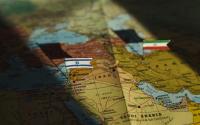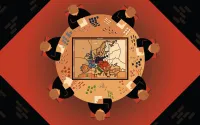ZnetNew Statesman (UK); May 26, 2003
In recent weeks, a number of apparently unrelated news reports have, in sum, told a truth that is never reported. According to Human Rights Watch, thousands of British and American cluster bombs were fired at and dropped on civilian areas in Iraq. British artillery fired more than 2,000 of them at Basra. Each shell scatters bomblets over a wide area, and many fail to explode. Their victims are "not known", says the Ministry of Defence. They are known. They are often children; Iraq's population is almost half children.
At the same time, HMS Turbulent, a nuclear-powered submarine, returned to Plymouth flying the Jolly Roger, the pirates' emblem. This vessel fired 30 American Tomahawk cruise missiles at Iraq, at a cost to the British taxpayer of £21m. What did they hit? How many people did they kill or maim in this nation of sick people and disproportionate numbers of children? The commander would only say that he was "proud to be called forward".
Readers will remember the patriotic calls to "support the troops" regardless of one's misgivings about the war. Why a non-conscripted force deserved our "support" in its illegal and craven actions against a weak and stricken nation was never explained by any politician, newspaper or broadcaster.
Very recently, the news was dominated by embarrassing disclosures about the British "secret war" in Ireland. The British "security services" were confirmed as the most important and most ruthless terrorist organisation in Northern Ireland, having funded, trained and protected terrorists on both sides. Their victims included solicitors, pensioners and even their own agents. Like the Blair government's crimes in Iraq, the revelations now emerging from the murk of Britain's war in Ireland are unlikely to be placed in their proper historical context.
That was certainly true following the 1994 public inquiry into the scandal of illegal British arms sales to Iraq, presided over by Lord Justice Scott. Behind the obfuscations of Scott's summary, the truths he found were explosive. Tim Laxton, an auditor assisting the inquiry and one of the few to hear almost all the evidence, believes that had Scott's terms of reference given him clout, hundreds would have faced criminal investigation. "They would include," he said, "top political figures, very senior civil servants from the Foreign Office, the Ministry of Defence, the Department of Trade and Industry . . . the top echelon of the British government."
British imperial power has been second to none in covering, even romanticising its crimes, projecting itself as benign and wise, even a gift to humanity. With every generation comes new mythologists. "When a well-packaged web of lies has been sold gradually to the masses over generations," observed the American sage Dresden James, "the truth will seem utterly preposterous and its speaker a raving lunatic." A brilliant, exciting and deeply disturbing book, published this month, unwraps the whole package, layer by layer, piece by piece. This is Web of Deceit: Britain's real role in the world by Mark Curtis (Vintage).
Curtis's history could not be more timely, for not in my memory has there been such an expose of private revelations and true intentions, told largely from official files. I know of no other living historian who has mined British foreign policy archives as devastatingly. From Africa to south-east Asia, Chechnya to Iraq, Curtis provides documented evidence of British foreign policy as "one of the leading supporters of terrorism in the world today . . . a simple fact never mentioned in the mainstream political culture". Most of his primary sources have long been in the public domain: a fact that shames silent, mainstream journalism.
It was Mark Curtis who was among the first to reveal the scale of British complicity in the bloodbath that brought General Suharto to power in Indonesia in 1965-66 (and had difficulty getting a newspaper to publish his findings).
He describes a total silence in the 1960s when the Labour government of Harold Wilson supplied warships, logistics and intelligence in support of Suharto. The slaughter of up to a million people was simply ignored in Britain; the headlines said that communism had been defeated in Indonesia and "stability" restored.
What has changed? Not much. At the Labour Party conference in 2001, Tony Blair declared his "moral commitment" to the world. "I tell you," he said, "if Rwanda happened again today as it did in 1993, when a million people were slaughtered in cold blood, we would have a moral duty to act." The following day, as Curtis points out, Blair's statement was reported without a single journalist reminding the British people that their government had contributed to the slaughter in Rwanda.
From official files, Curtis describes how the British government "used its diplomatic weight to reduce severely a UN force that, according to military officers on the ground, could have prevented the killings. It then helped ensure the delay of other plans for intervention, which sent a direct green light to the murderers in Rwanda to continue. Britain also refused to provide the capability for other states to intervene, while blaming the lack of such capability on the UN. Throughout, Britain helped ensure that the UN did not use the word 'genocide' so the UN would not act, using diplomatic pressure on others to ensure this did not happen." Not a word about this appeared in the British media at the time.
A similar silence has shrouded the shocking story of Diego Garcia. Last year, a report in the Washington Post alleged that the United States had "rendered" alleged al-Qaeda prisoners for interrogation (tortured them) at the US base on Diego Garcia in the Indian Ocean. This is British territory "leased" by the United States without the agreement of the inhabitants. As Curtis documents, the 1,500 Ilois people were, to use the official term, "removed" from their homeland in the Chagos island group in 1966 by the Wilson government. This ruthless dispossession, secretly executed so that the largest island, Diego Garcia, could be handed to the American military, was, as the files show, "the subject of systematic lying by seven British governments over near four decades". The Ministry of Defence even denied that the island had been populated at all. BBC newsreaders routinely echo this. A high court action giving the people the right of return has been ignored by the Blair government. "Violating international law," writes Curtis, "has become as British as afternoon tea."
The final chapter, "The Mass Production of Ignorance", describes a virulent media censorship by omission that is not conspiratorial, more a celebration of "one key concept: the idea of Britain's basic benevolence . . . the idea that Britain promotes high principles - democracy, peace, human rights and development - in its foreign policy".
In other words, the truth is simply left out. This superb book puts it back in.
[http://www.johnpilger.com]






